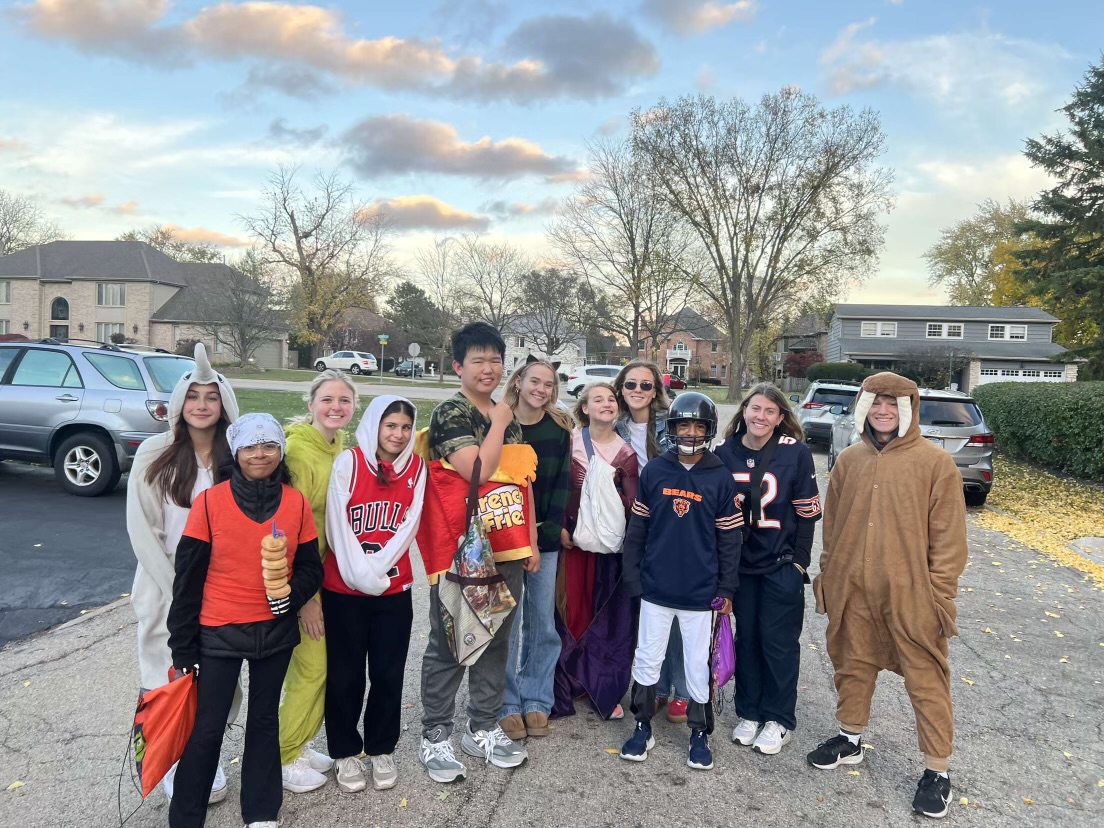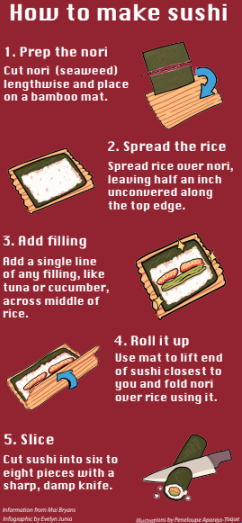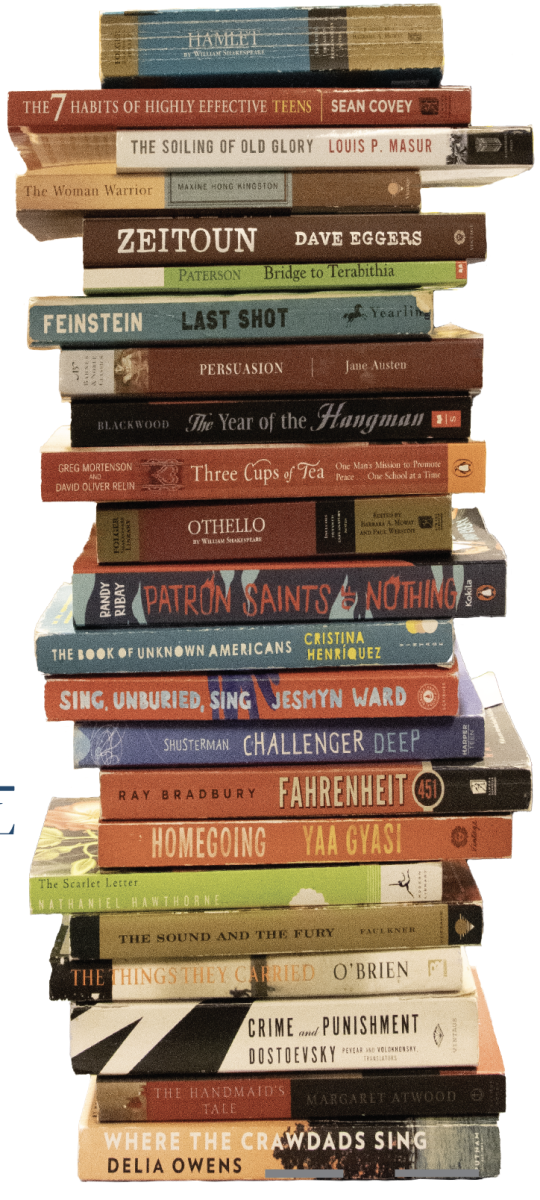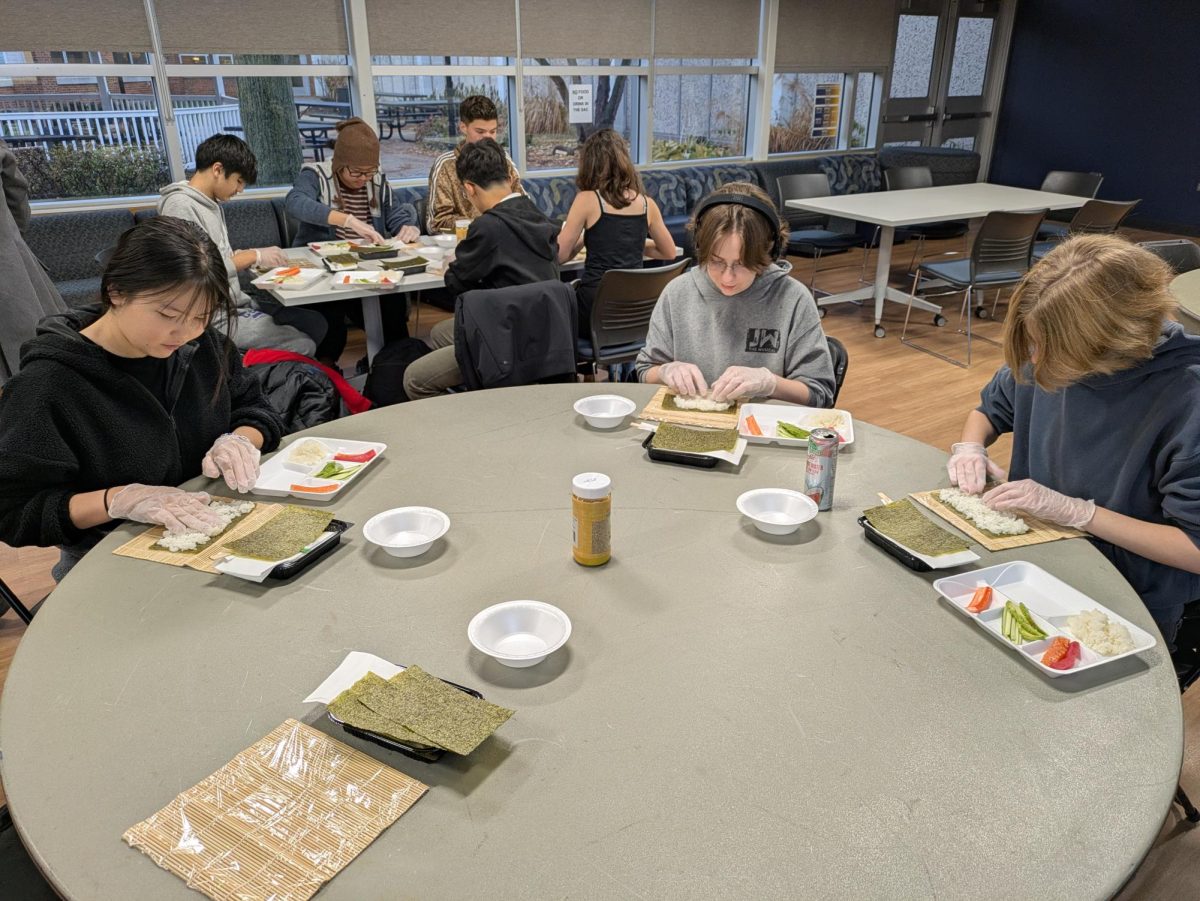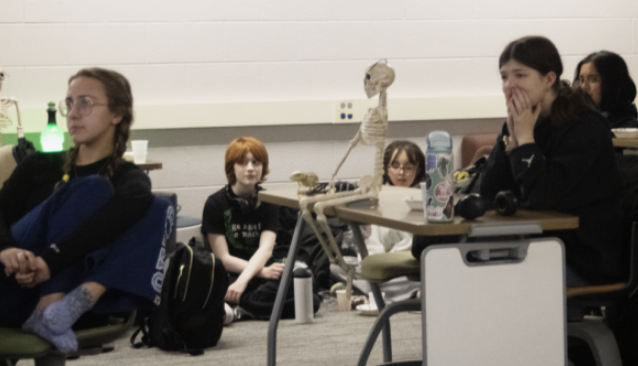The clock strikes 1:45 p.m. in the fieldhouse lobby, where students with disabilities gather before the beginning of their specialized Physical Education (P.E.) class. They might be playing volleyball with balloons, or playing basketball through hanging hula hoops, or maybe just walking around the track with a friend — no matter the activity, they do not have to do it alone because of the Peer Mentors program.
Developed more than 35 years ago, Peer Mentors work throughout the school day, aiding students and teachers in the Special Education Department, Lindsay Smigiel, Special Education Teacher and Peer Mentors Sponsor, said.
Peer Mentors can be taken as a year-long course, or single semester for sophomores, juniors, and seniors, senior Ava Iannucci, Peer Mentors President, said. Throughout the class, Mentors help students develop their executive functioning skills and create a social experience, cultivating friendships between the Mentors and students, Iannucci added.
“Yes, [you are] helping these students, but [it is] as if you were to help any friend,” Iannucci said. “[Peer mentors is] an opportunity to help your friends in class, or in a situation where they might need a reminder of what’s supposed to be going on and help with assignments.”
Applications to become a Peer Mentor are sent out to freshmen, sophomores, and juniors students in November, and registration to become a mentor for the following year is in January, Smigiel said. The selected mentors will be placed in a Special Education class where mentors have been requested, Smigiel added.
“My strongest Peer Mentors are those who are good communicators, friendly, outgoing, and take initiative,” Smigiel said.
A good Peer Mentor has compassion, patience, and understanding. However, the program allows mentors to grow, Iannucci explained.
“It’s easier to see in this setting that people learn in different ways,” Iannucci said. “These are [students] that might learn differently than you, so you need to adapt to that and figure out what helps these students.”
In order to prepare to help students attain their specific objectives, the teacher-to-mentor communication is helpful, junior Sofia Silva, Peer Mentor, said. Silva mentors in the Adaptive P.E. Class where she and another Mentor work one-on-one with students on specific goals, including participation, attention, or a movement goal, Silva explained.
“[For the students] who have more physical disabilities, [we] try to get them to bring their arms higher, stretch, or do different movements that they don’t regularly do,” Silva explained. “[For those] of them who have more intellectual disabilities, we try to get them to stay on task and participate in the activity.”
By encouraging students to go further, Silva hopes to instill them with self-confidence, she said.
“I always try to push [the students] so I hope that they learn from that and think: I can achieve more than I think I can and [push] themselves even when I’m not there to achieve [their] goals,” Silva said.
Outside the classroom, Peer Mentors maintain strong connections with their students through a club called The Council of Exceptional Children, Iannucci said. Through Council of Expectional Children, which hosts events like Friednsgiving, Iannucci said.
“Organizing things outside of school with the Peer [Mentors] and students with [disabilities shows] that this is more than just a mentoring program, it’s a friendship as well,” Iannucci said.
Iannucci has gained a broader feeling of compassion through this program, she said.
“My heart has more space for more people,” Iannucci said. “I’ve learned what it means to have friendship and what being kind to someone can really do for them throughout [my Peer Mentoring] experiences.”


